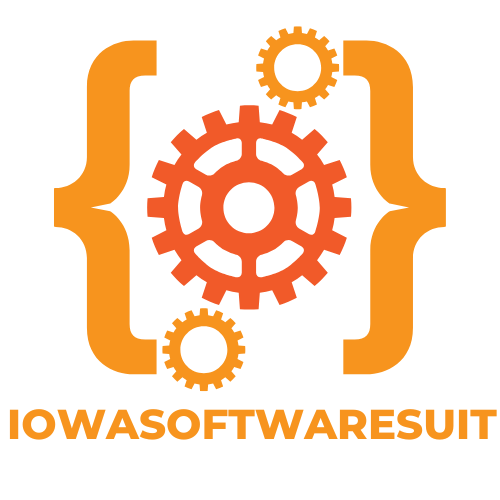Table of Contents
ToggleIn a world where coding skills can make or break your career, Python stands out as the friendly giant of programming languages. Whether you’re a complete newbie or looking to sharpen your skills, diving into Python coding tutorials can feel like finding the cheat code to life. With its simple syntax and vast community support, Python makes coding less of a headache and more of a fun challenge.
Overview of Coding Tutorials for Python
Various coding tutorials are available for those wanting to learn Python. These tutorials cater to different skill levels, from absolute beginners to advanced programmers. Comprehensive resources cover essential Python concepts such as data types, control structures, and functions.
Online platforms like Codecademy and Coursera provide structured courses. Each course features interactive lessons that enhance engagement and retention. Additionally, sites like freeCodeCamp offer free content, allowing learners to practice coding through real-world projects.
Books remain a valuable resource. Titles such as “Automate the Boring Stuff with Python” provide practical examples to reinforce learning. They guide readers through useful applications, bridging the gap between theory and practice.
YouTube hosts numerous channels that focus on Python tutorials. Channels like Corey Schafer and Programming with Mosh offer video content, making learning more accessible. Each video series typically covers foundational concepts, giving viewers a clear understanding of Python syntax and functionality.
Communities also play a crucial role in Python education. Platforms like Stack Overflow and Reddit’s r/learnpython enable learners to seek help and share knowledge. These forums foster collaboration and provide additional resources to deepen understanding.
Overall, Python coding tutorials offer diverse learning methods to suit individual needs. Structured online courses, practical books, engaging videos, and supportive communities create a rich learning environment for aspiring Python developers.
Types of Python Coding Tutorials

Python tutorials vary by skill level, catering to beginners, intermediates, and advanced learners. Each category provides a tailored approach to mastering the language.
Beginner Tutorials
Beginner tutorials introduce fundamental concepts and basic syntax. Platforms like Codecademy offer guided lessons that help new learners build confidence. Interactive exercises reinforce understanding and allow hands-on experience. Free resources, such as freeCodeCamp, present real-world projects for practice. YouTube channels, including Corey Schafer, simplify complex ideas through engaging videos. Tutorials from organizations like W3Schools condense information, making the learning process accessible. Online forums and communities serve as support networks for learners tackling initial challenges.
Intermediate Tutorials
Intermediate tutorials deepen understanding of Python’s capabilities. Courses on Coursera cover topics like data structures and algorithms, enhancing problem-solving skills. Books such as “Fluent Python” provide in-depth analyses of language features, equipping learners with advanced techniques. Projects involving web development or data analysis help apply learned concepts in practical scenarios. Participation in coding challenges on platforms like LeetCode strengthens coding proficiency. Access to community discussions allows intermediates to gain insights and tips from experienced developers. These resources create a comprehensive approach to refining programming skills.
Advanced Tutorials
Advanced tutorials focus on specialized areas within Python programming. Topics may include machine learning, data science, or web frameworks like Django. Online courses often include real-time projects, allowing learners to contribute to meaningful applications. Collaborative platforms like GitHub provide opportunities for code sharing and peer review. Research papers and technical blogs educate on cutting-edge developments in the Python ecosystem. Networking through Python conferences facilitates connections with industry experts. Advanced learners benefit from resources that challenge their skills and expand their knowledge base.
Popular Platforms for Python Coding Tutorials
Various platforms provide valuable resources for learning Python effectively. Each offers distinct features tailored to enhance the learning experience.
Online Learning Platforms
Codecademy and Coursera lead in structured online courses, combining interactive lessons with engaging projects. Skill levels range from beginner to advanced, allowing learners to progress at their own pace. Platforms like Udacity and edX also offer specialized courses focusing on areas like data science and web development. These resources frequently provide hands-on coding sessions to solidify understanding.
YouTube Channels
Corey Schafer and Programming with Mosh excel in delivering quality video content for Python learners. Tutorials emphasize foundational concepts, often breaking down complex topics into digestible segments. Channels like Tech with Tim also showcase practical coding projects and challenges. Viewers can benefit from a diverse range of instructional styles, making learning more accessible.
Books and eBooks
“Automate the Boring Stuff with Python” remains a top choice for beginners and experienced programmers alike. This book offers practical examples that bridge theory with real-world applications. Other renowned titles, such as “Python Crash Course,” explore essential programming skills within an easy-to-understand framework. Utilizing eBooks allows continuous access, supporting learning anytime, anywhere.
Key Features to Look for in Coding Tutorials
Finding the right coding tutorials can significantly impact the learning experience. First, tutorials should offer interactive elements that engage learners actively. Platforms like Codecademy and Coursera excel in providing hands-on coding exercises, enabling immediate application of concepts.
Next, clarity of instruction matters immensely. Effective tutorials utilize straightforward language with concise explanations, making complex topics easier to grasp. Visual aids like diagrams and code snippets enhance understanding, especially for visual learners.
Structured content is another essential feature. Clear progression from basic to advanced topics allows learners to build on their knowledge seamlessly. Beginners benefit from introductory lessons that lay a solid foundation before tackling more challenging subjects, while advanced learners dive directly into specialized topics.
Community support is crucial in learning. Tutorials that encourage interaction, such as forums or integrated discussions on platforms like freeCodeCamp, provide valuable opportunities for collaboration and networking. Engaging with peers helps learners resolve issues and gain diverse perspectives.
Flexibility in learning also plays a key role. Many productive coding tutorials offer self-paced modules, accommodating diverse schedules and learning speeds. This adaptability ensures students can pursue their education without feeling rushed or overwhelmed.
Finally, accessibility to additional resources enhances the learning experience. Recommendations for supplementary materials, such as books and YouTube channels, round out the educational approach. Resources like “Automate the Boring Stuff with Python” and channels like Corey Schafer provide further insights and practical examples, reinforcing foundational skills and encouraging continuous learning.
Embracing Python through various coding tutorials opens doors to endless opportunities in programming. The accessibility of resources ensures that learners can find the right fit for their skill level and learning style. Engaging with interactive courses books and video content fosters a deeper understanding of Python and its applications.
Additionally the supportive online communities provide a platform for collaboration and growth. As individuals navigate their Python journey they’ll discover not just a programming language but a vibrant ecosystem of knowledge and innovation. With the right resources and dedication anyone can master Python and unlock their potential in the tech world.





